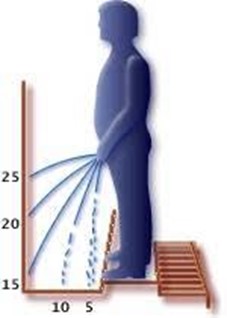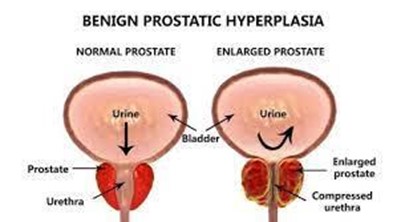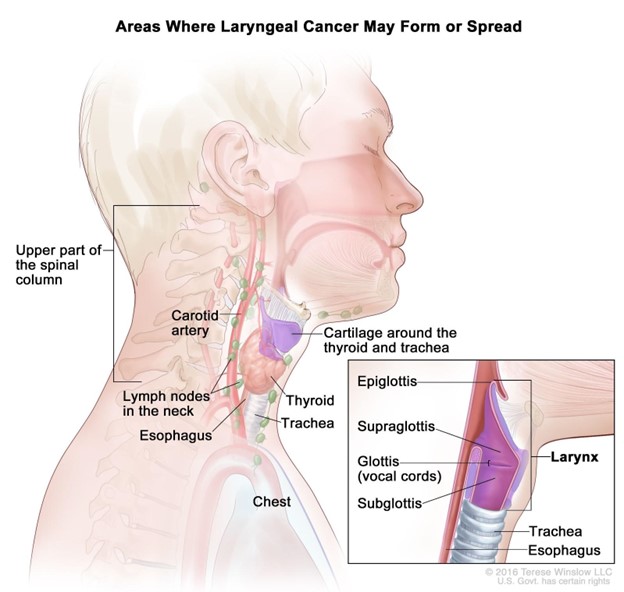A nurse is caring for a client who has benign prostatic hyperplasia (BPH). Which of the following findings should the nurse expect?
Painful urination
Decreased urinary stream
Critically elevated prostate-specific antigen (PSA) level
Urge incontinence
The Correct Answer is B
Choice A Reason: Painful urination is not a common finding in BPH, but it may indicate a urinary tract infection or bladder stones.
Choice B Reason: Decreased urinary stream is a common finding in BPH, as the enlarged prostate compresses the urethra and obstructs the flow of urine.
Choice C Reason: Critically elevated PSA level is not a common finding in BPH, but it may indicate prostate cancer or prostatitis.
Choice D Reason: Urge incontinence is not a common finding in BPH, but it may indicate an overactive bladder or neurogenic bladder.


Nursing Test Bank
Naxlex Comprehensive Predictor Exams
Related Questions
Correct Answer is B
Explanation
Choice A Reason: Increased pain is not a specific sign of hemorrhage, but it may indicate inflammation, infection, or nerve damage.
Choice B Reason: Continuous swallowing is a sign of hemorrhage, as it indicates that blood is accumulating in the throat or esophagus and stimulating the swallowing reflex.
Choice C Reason: Poor fluid intake is not a sign of hemorrhage, but it may indicate difficulty swallowing, nausea, or dehydration.
Choice D Reason: Drooling is not a sign of hemorrhage, but it may indicate impaired oral control, salivary gland damage, or infection.

Correct Answer is D
Explanation
Choice A Reason: Hypertension is not a common finding in a client with low calcium level, but it may indicate other conditions such as renal disease or pheochromocytoma.
Choice B Reason: Diaphoresis is not a common finding in a client with low calcium level, but it may indicate other conditions such as fever, anxiety, or hyperthyroidism.
Choice C Reason: Increased thirst is not a common finding in a client with low calcium level, but it may indicate other conditions such as diabetes mellitus, dehydration, or psychogenic polydipsia.
Choice D Reason: Muscle tetany is a common finding in a client with low calcium level, as it indicates that the nerves and muscles are overexcited and contract involuntarily. It may manifest as spasms, cramps, twitching, or tingling sensations.
Whether you are a student looking to ace your exams or a practicing nurse seeking to enhance your expertise , our nursing education contents will empower you with the confidence and competence to make a difference in the lives of patients and become a respected leader in the healthcare field.
Visit Naxlex, invest in your future and unlock endless possibilities with our unparalleled nursing education contents today
Report Wrong Answer on the Current Question
Do you disagree with the answer? If yes, what is your expected answer? Explain.
Kindly be descriptive with the issue you are facing.
